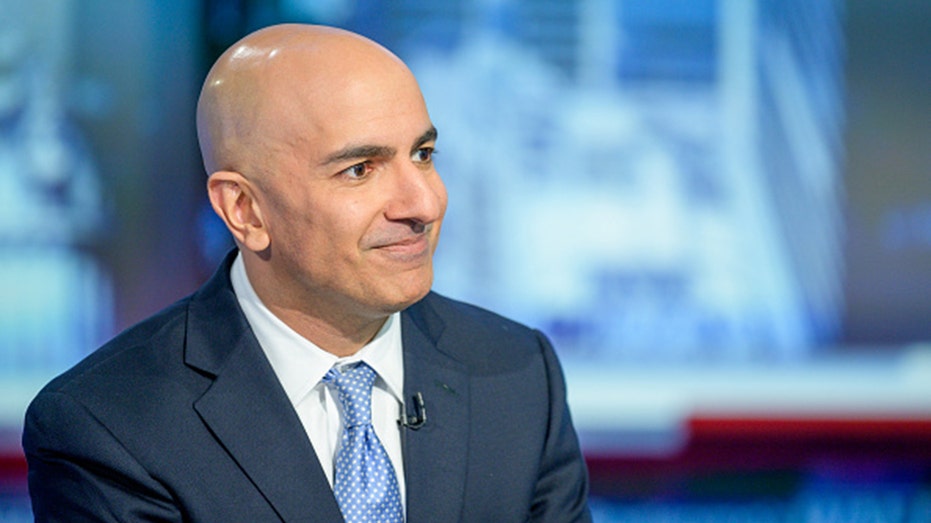Fed banks vs Sen. Toomey in war of words over climate and social justice issues
Fed officials say their social justice work as an extension of the central bank's jobs mandate
A squabble between a Republican senator and some regional Federal Reserve banks over their embrace of climate and social justice issues highlights the limits of congressional oversight over the quasi-private institutions.
On Wednesday, Sen. Patrick Toomey, R.-Pa., accused the Atlanta, Boston, Minneapolis and San Francisco Fed banks of ignoring his requests for information about their work on racial economic justice and climate issues.
In May, the ranking member of the Senate Banking Committee asked the banks for documents and briefings. The banks said they responded expansively to the senator, including offering their respective leaders for conversations, which Mr. Toomey hasn't taken them up on.
FED'S BULLARD WARNS INFLATION COULD BE HIGHER THAN EXPECTED IN 2022
Mr. Toomey believes research by the Fed banks on climate and social justice issues doesn't fall within the U.S. central bank's mandate to promote price stability and maximum sustainable job growth.

Sen. Pat Toomey, doesn't believe research by the Fed banks on climate and social justice issues doesn't fall within the U.S. central bank's mandate to promote price stability and maximum sustainable job growth. (Sarah Silbiger/The Washington Post via (AP)
The Fed banks contend they have done what they can to give Mr. Toomey the answers he seeks.
"We responded to Senator Toomey's initial request from late May and offered him a briefing with President [Raphael] Bostic," an Atlanta Fed spokesperson said Wednesday, adding "we provided a staff briefing in June and hope to continue conversations about the Senator's inquiry."
The Minneapolis Fed also responded to the senator's request for information, according to a bank spokesperson. "Our response included a meeting between the Ranking Member's staff and two of our senior vice presidents, an offer for President Neel Kashkari to meet with the Ranking Member, and a lengthy written response that addresses the questions raised in his initial correspondence," the spokesperson said.

Minneapolis Federal Reserve Bank President Neel Kashkari according to a spokesperson has offered to meet with Sen. Toomey to discuss the senator's concerns. (Photo by Roy Rochlin/Getty Images) (Getty Images)
Boston Fed leader Eric Rosengren offered to speak with the senator, a bank spokesperson said, adding the bank also responded to him with a detailed letter and a staff briefing.
Meanwhile, the San Francisco Fed, the first bank Mr. Toomey pressed over what he considers to be mission creep, said it has worked to provide the senator the information he requested and offered to have its leader Mary Daly speak with him. A bank spokesman said "we are aware of Sen. Toomey's concerns, and we look forward to discussing them with his office."
POWELL SAYS FED DOES NOT SEEK TO SET CLIMATE POLICY FOR US
A spokesperson for Sen. Toomey said he has declined briefings with the bank presidents because the Fed branches haven't provided the information he seeks. In his May letter to the banks, Mr. Toomey asked for all central bank records related to recent Fed events on race and the economy, emails tied to central bank work on race issues, and financial information about the banks' research and community development budgets.
"Senator Toomey would welcome a conversation after he receives the documents he requested," the spokesperson said, adding "to date, the banks have failed to provide the Ranking Member with a single document, choosing instead to conceal this information from both Congress and the American people."
The crossed wires between the senator and the Fed banks in part may reflect that regional Fed banks, unlike the Federal Reserve Board of Governors in Washington, aren't explicitly part of the federal government, affecting how they respond to oversight by legislators.
While under the control of Washington, the Fed's 12 regional banks are technically owned by member banks and are directly overseen by boards whose directors come from the private sector. Regional Fed bank presidents are paid substantially more than Fed governors in Washington. Some academics have argued this is a bad system and the regional Fed banks should become part of the government.
"A core challenge is that the regional Fed banks do not fit neatly into modern conceptions of the administrative state," said Kathryn Judge, a law professor at Columbia University.
"The Federal Reserve Act was adopted before the rise of the modern administrative state," she said, noting "that helps to explain the distinct governance of the regional central banks and the somewhat odd way in which they can influence and implement Fed policies."
Fed officials have defended their social justice work as an extension of the central bank's jobs mandate, which they say can only fully be met if all Americans, including racial minorities and those who are economically disadvantaged, can take part in economic expansions.
CLICK HERE TO READ MORE ON FOX BUSINESS
At the same time, the Fed has moved to take on climate issues as part of its bank oversight work, citing risks created by a warming planet to financial stability. The Fed, however, has deferred broader matters regarding environmental policies to elected officials.
In an interview Thursday, Philadelphia Fed President Patrick Harker said climate risks and racial economic inequality are natural subjects for the central bank to study because they go directly to its core mission on inflation and job creation.
"I believe it's the right thing to do, to focus on what are these impediments to getting more people into the labor force," Mr. Harker said. Fed research tries to understand such challenges because they ultimately are among the factors informing monetary policy, he said.




















